Webinar Recording on literature review tools and strategies
The Effortless Literature Review 2.0
► Step-by-step system from idea to finding relevant publications.
► AI Tools to find studies that support or contrast one another.
► Leverage Litmaps to find, prioritize and keep track of papers.
► Remember what you read by integrating with your notes.
► Find reference gaps in any publication (even your own).
► Integrate AI into MS Word for polished manuscripts.
► Improved with new tools and methods, since webinar in March.
The regular price is $30. If you are from a lower income country, contact me for a discount.
Who is this for?
Transform your research, if you...
► …feel you can't read everything that you'd want to
► ...want to start using AI as an academic
► …feel ambitious to excel in your field of research
► …don't want to rely on journals to decide what is important
► ...want to stop forgetting what you read
► ...are an interdisciplinary researcher and need insights fast
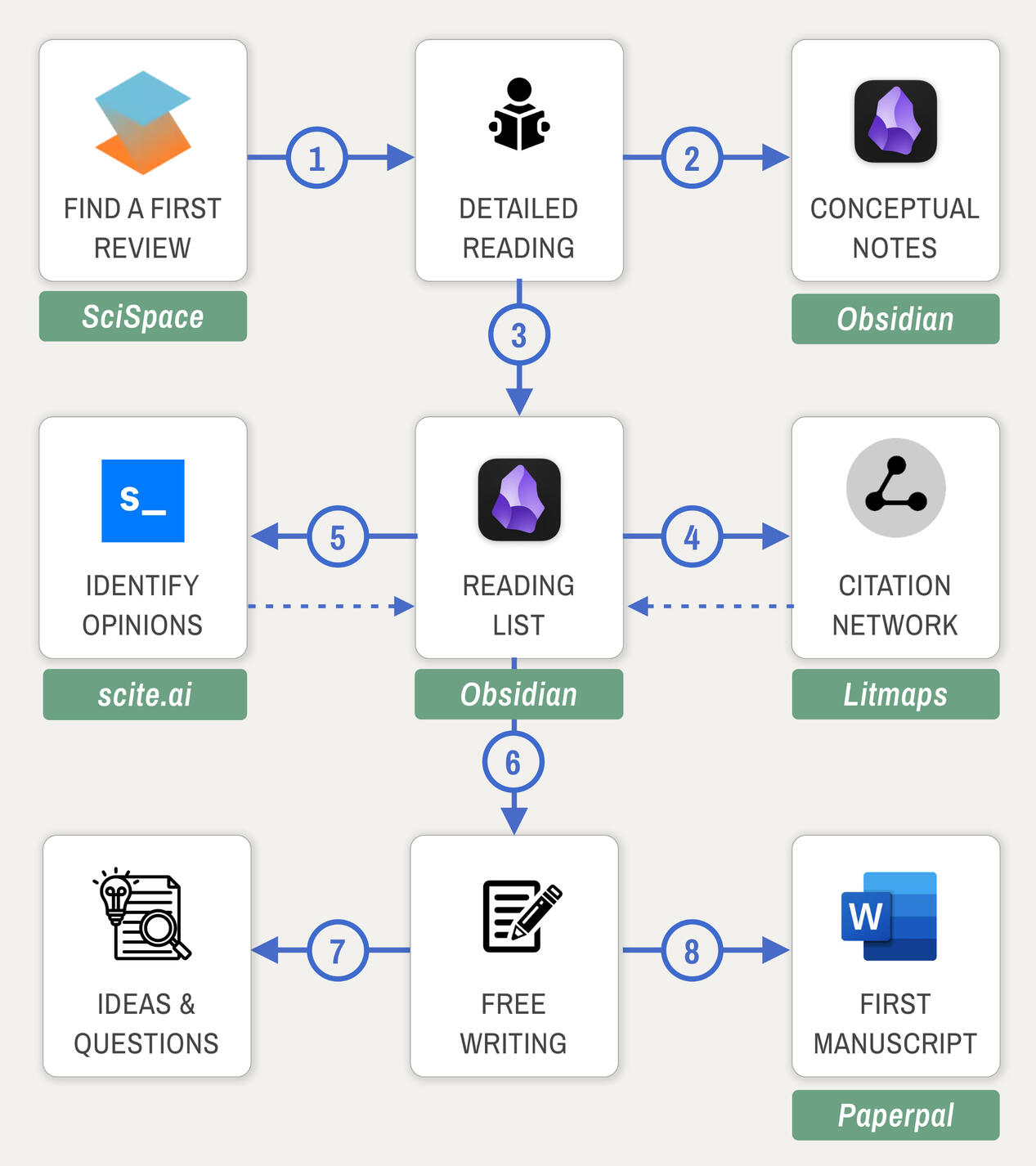
Literature discovery can be tedious.But it can be automated with tools and AI. We will build our own personal literature discovery engine.The components are:
• SciSpace Search to find relevant publications from just a plain text question
• Litmaps to find every relevant publication and spot gaps in your and others' research.
• scite.ai to find contrasting evidence for your papers and dig deep into an area of scientific discourse.
• Obsidian to leverage a smart note-taking strategy for synthesising and remembering what you read
• Paperpal to polish your manuscripts with AI
Testimonials from my last workshop
What others are saying
More than a 1000 academics have visited one of my webinars or downloaded one of my courses.Here is what folks are saying:
What's in it?
Zero-to-Hero Workshop
► 2.5hr of videos suitable for all skill levels.
► Annotated recording, with additional background information
► Access to a private discord chat, for 1-on-1 discussion
► All software used is available on Mac or PC.
► Receive big discount codes for paid tools like Litmaps and Scite.
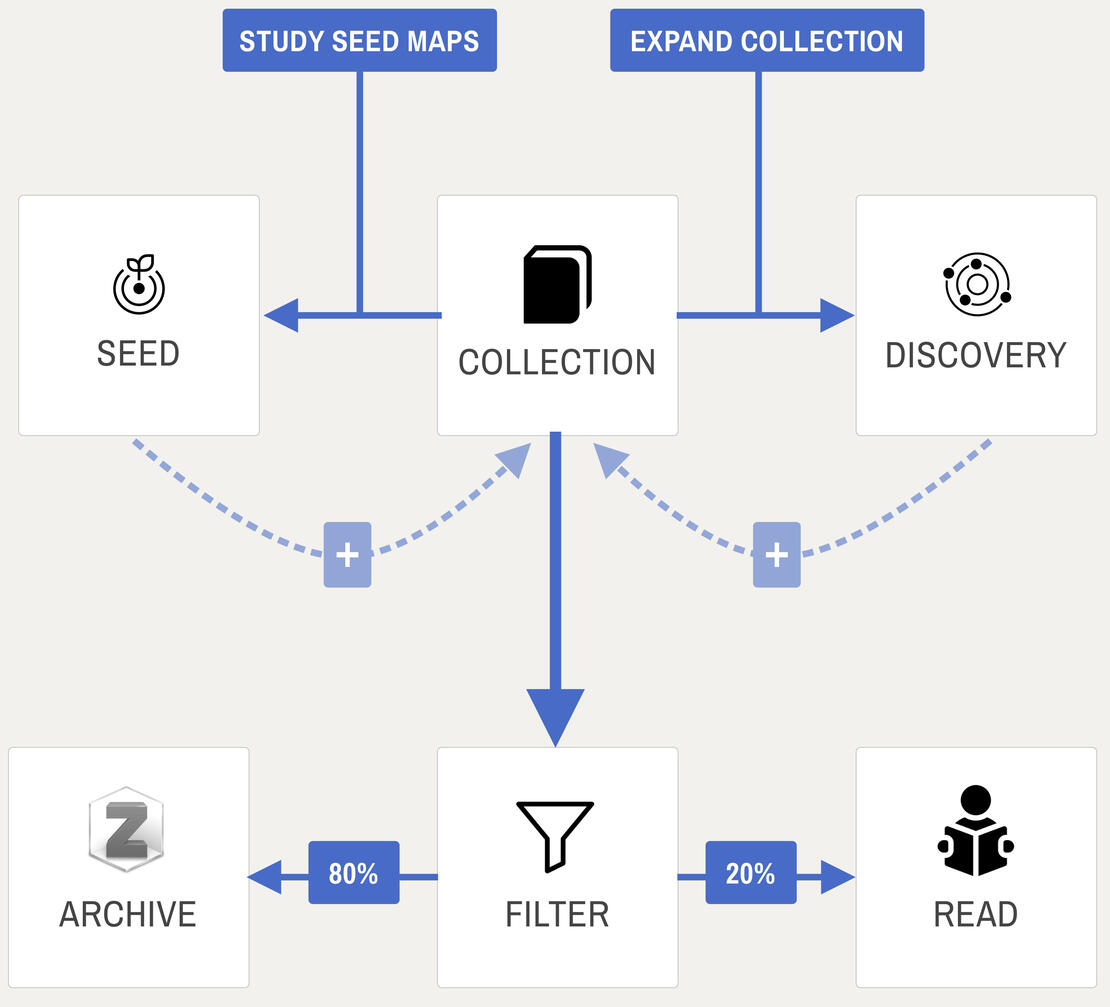
After these 2.5 hours you will have no trouble discovering, keeping track and organizing your literature.We will not only dive into how to discover literature, but also how to identify what is important.We will learn a technique to organize your literature visually and leverage our spatial memory. Obsidian Canvas is a simple interactive mindmap of your notes/papers.
Leverage visual discovery of publications
Litmaps: Effortless Discovery
If you have followed me on Twitter, you have seen my reviews on many discovery tools. But one of them keeps coming back: Litmaps.It stands out in its simplicity, sophistication and innovation. That is why 2 hours is enough to make you into a Litmaps expert.Set it up once and click a button to automate your discovery process.
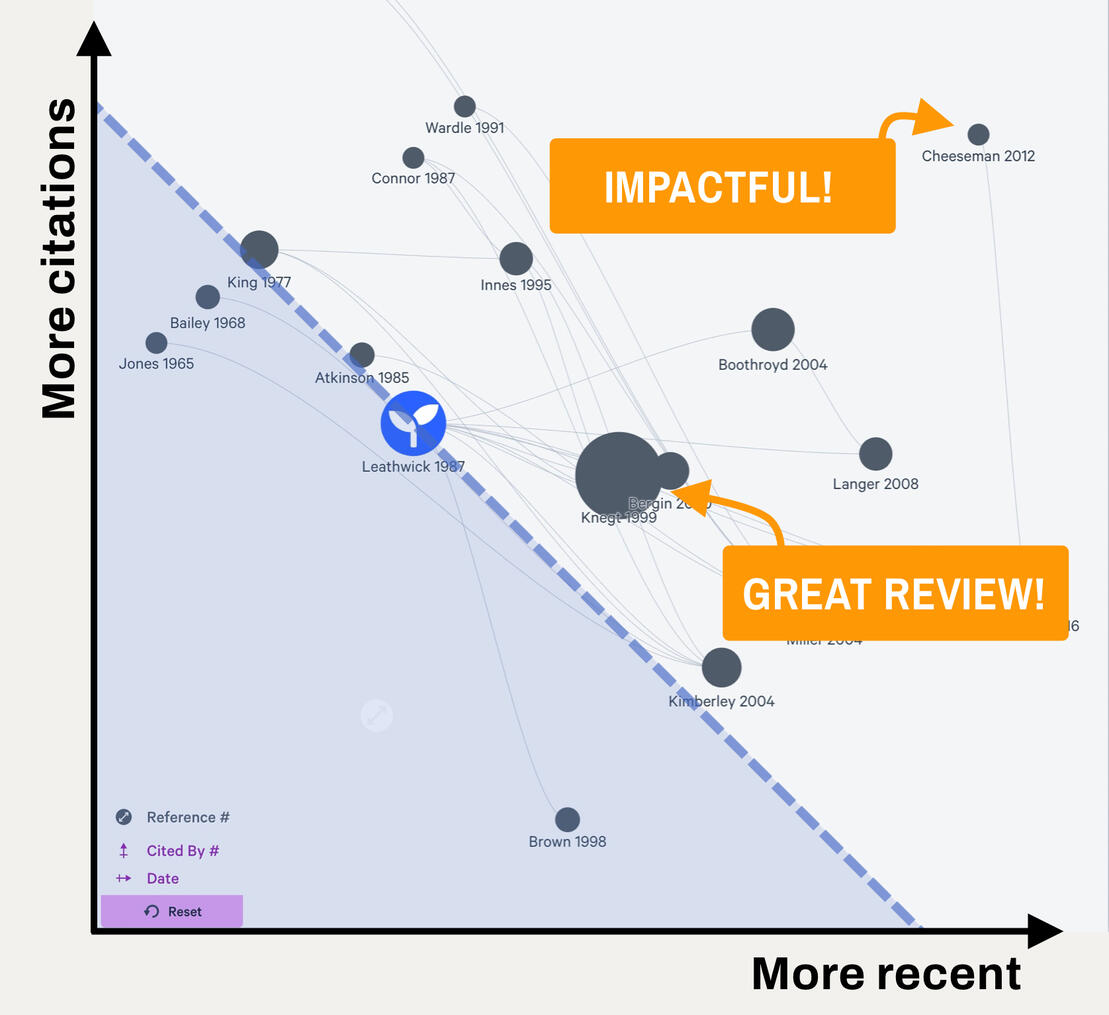
Why Litmaps:► Discovers new literature in seconds.
► Upload your existing bibliography and fill out the gaps.
► Set up reminders for new publications based on your interests.
► It visualizes your research and makes it more intuitive.
► Enjoy working with elegant software.Litmaps is a payed tool: 10$ a month. But it solves an absolutey critical challenge: Literate review. This can make or break your entire career.Besides, the free version is quite powerful. They offer a 50% discount for people in countries with lower income and this course will get you 20% OFF.
But I visited your first webinar in MArch!
What changed in 2.0?
The first webinar was visited by more than 500 people. Since then I refined the method, and integrated it with my note taking workflow.Finding literature is no longer difficult. But taking good notes and prioritizing your reading continues to be a challenge. That is why in this webinar you are going to learn more about:
• integrating your lit review with your Obsidian notes.
• a strategy on how to prioritize and dig into a topic, without losing the overview.The first webinar was about breadth, this one is about depth. That means, even if you visited the Effortless Literature Review webinar in March, you will still learn many new tricks and tools in version 2.0.
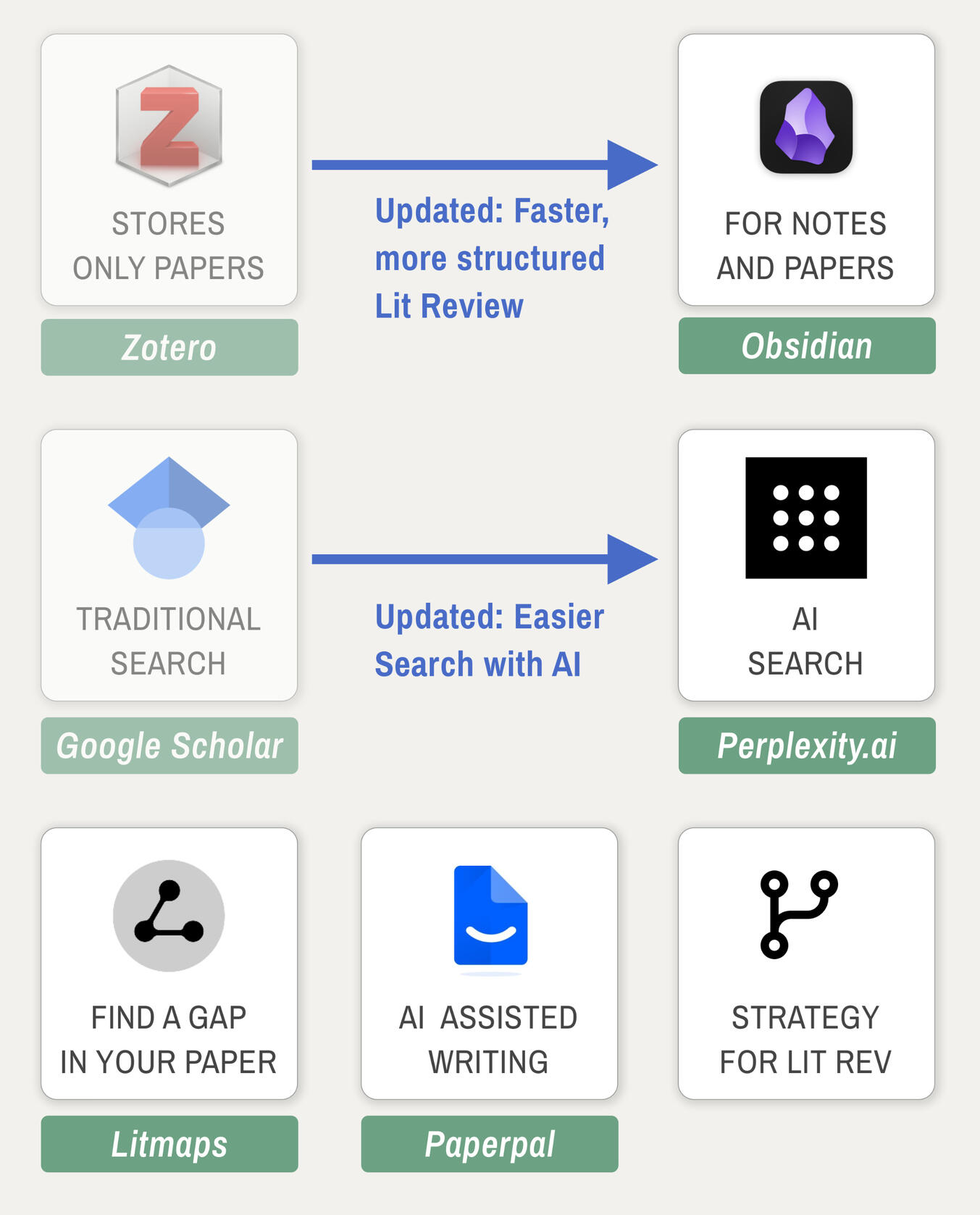
As I have been reading and structuring my own literature intensively for months, I made a lot of updates to the flow.Plus, you'll get a sneak peak into my vault with 100s of notes and papers. Ask me anything.
Let AI give you an estimate of importance
Find gaps in the literature
Normally, you would read extensively to try to find something someone else (or even yourself) missed.But with Litmaps you can use the references of a paper and their similarity algorithm to identify what papers the authors could have cited but didn't: Gaps!This is how easy it is:
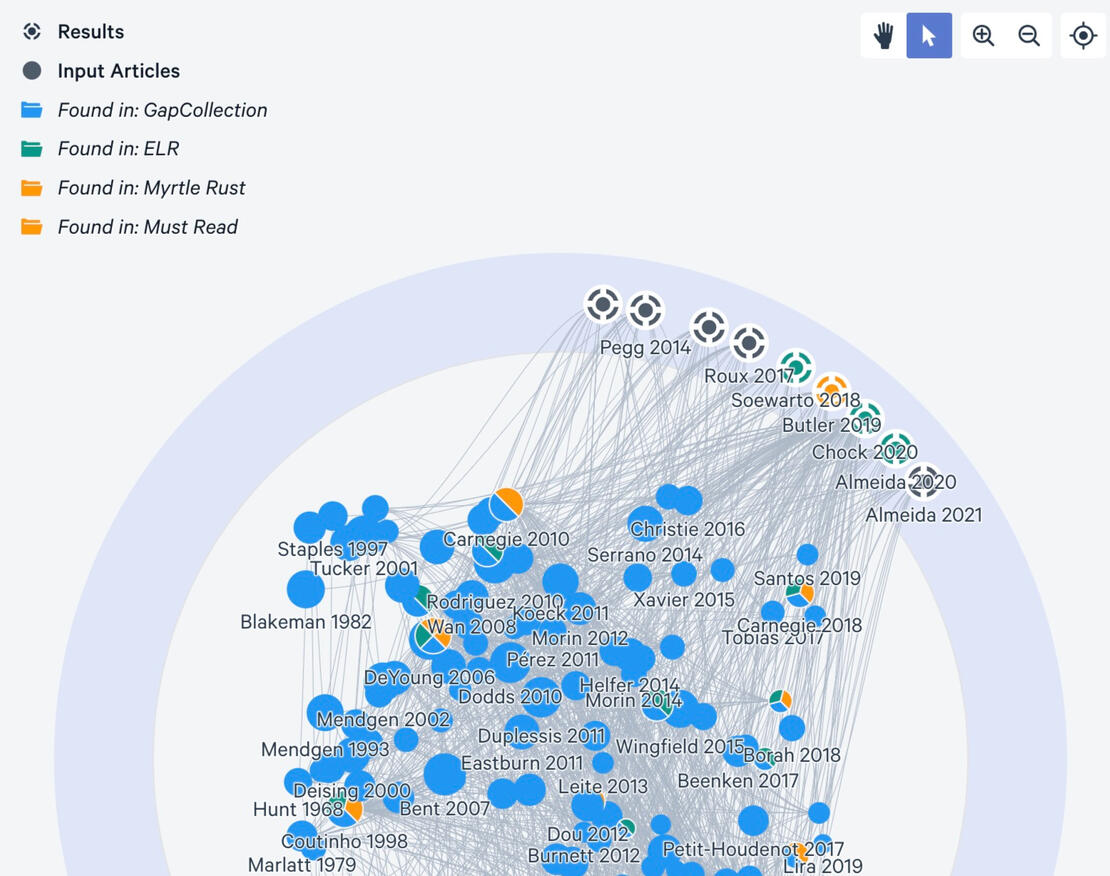
Additionally you can use the same technique to analyze your own publication before submitting it (or someone else's if you are a peer reviewer).Don't miss a thing with this technique.

Meet your instructor
Ilya Shabanov, MSc
Not your average scientist. I spent 12 years in industry, co-founded a brain training startup NeuroNation, ran a web design firm and only at 36 decided to do a PhD in biology.At this point I didn't know much about biology - yet 6 months later I had a paper in peer review and a glowing recommendation from my supervisor:

My secret to learning very fast is not talent.It's "Knowledge Management", something I did routinely as a CEO.You and I play chess with the same pieces, right? But who wins? The person with a better strategy - continuously & predictably. Research is not different.But has anyone ever taught you a strategy on how to "do science"? If you're lucky your supervisor can show you a thing or two. More likely, they won't even have the time.I decided to change that and in December 2022 launched a Twitter account that is now one of the biggest accounts when it comes literature review and note taking strategies for academics.But there is so much more than what can fit into 240 characters."The Effortless Literature Review 2.0" is the development of my original course, it focuses more on going in-depth into the literature review, rather than collecting papers first. This narrative-first approach makes you motivated and efficient.It is the culmination of working with many different tools, combining them with my own workflows and refining it to a point of effortlessness. Not only does it work well, but it works well in the whole academic process, i.e. note taking and writing.The "nectar" of these explorations is condensed into this 2 hour workshop.